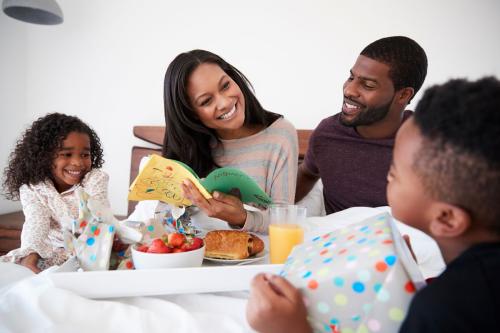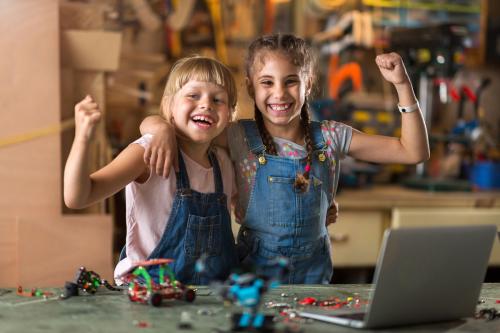One of the benefits of staying home is more quality family time with meals around the dinner table and the opportunity for good conversation.
There is an important gift you can give your children as you spend time together. You can be sure your children know your family’s stories. The telling of these often begins with you, the parents, sharing some of your growing-up experiences in an effort to support and encourage your kids as they go through disappointments or other setbacks.
But there is so much more. Kids want to know who they are. What does their family stand for, believe and champion? And, how did they arrive at their convictions? What life experiences or family history formed and strengthened family values, beliefs and behaviors?
Robin Fivush, Ph.D., of the Family Narratives Lab at Emory University, studies and teaches about the treasure trove of each family’s history. She has learned a great deal about the value of each person knowing his or her family’s stories.
Did a grandparent or great-grandparent emigrate from another country? Did family members experience war? The depression? The Influenza pandemic of 1918? Did family members experience hardships or accomplish incredible feats? Just how did your family arrive at the core values you hold to be true?
One way to begin the search for a shared family history is to interview older relatives. Once the interviews are completed, the family can come together to compare notes and have meaningful conversations related to the stories.
Here are some of the benefits of a shared family history
A heightened sense of identity
Children who know their intergenerational history have a stronger sense of who they are in relation to the rest of the world. They experience a kinship with their family lines and learn to identify with the culture, the life experiences, the adventures and the struggles of past generations. They find their true selves and are stronger for it.
A stronger sense of what the family believes and stands for
Knowing a grandfather or great-grandfather experienced the horrors of war, immigrated to a new land to find a better life or worked three or four jobs to take care of his family gives children the understanding that the people who came before them sacrificed so that today’s generation could have all they need. Children who see this history and learn the stories come to value their current life and their lifestyle in deeper ways.
A clearer knowledge of family values and emotional stability
Learning the family history with all its stories of the past helps children of today toward emotional well-being. They’ve created meaning from those stories and have learned how past family experiences affect them today. It provides perspective. It makes children more grateful and able to face any struggles or hardships that come their way now.
Begin by sharing your growing-up stories. Kids love to hear of times when you made some of the same mistakes they make today. They love to hear of your adventures and your escapades. They have a hard time imagining earlier days, so they’ll be all ears when you share from those “long ago times.”
Then, move on to hearing the stories of older, living family members. Your family may even catch the genealogy bug and delve into researching the family tree. It’s an enjoyable hobby, and it will all begin with sharing your family’s unique stories.
Here are some questions to help guide family interviews.
What was life like for you growing up in [location] during [time period]?
What did you and your siblings like to do together when you were kids?
What was your favorite family tradition or holiday celebration when you were young?
Do you have any memorable experiences or anecdotes from your school days?
How did you meet [spouse/partner]? Can you share a memorable moment from your courtship or early relationship?
What are some of the biggest changes you've witnessed in the world during your lifetime?
Can you recall any significant family milestones or events that had a big impact on you?
Is there anything you would like future generations of our family to know about you or our family history?









